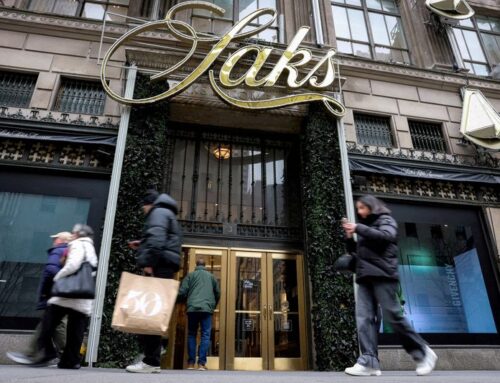The Hemp Trap: How Texas Cops and A Crime Lab Criminalize the Legal Cannabis Industry for
May 19, 2025
David Sergi and Kyler Rucker of Sergi and Associates, a San Marcos-based law firm
Across the state, lawful hemp retailers are raided, their employees arrested, and their businesses shuttered. The reason is not just outdated law enforcement tactics—it is a forensic trap exploited by police and crime labs to turn legal hemp into “illegal marijuana.” And no one profits more from this science fiction than Armstrong Forensic Laboratory, the preferred testing partner for dozens of Texas law enforcement agencies. In Texas, legality does not always equal safety, especially if you’re in the hemp business.
The Science Trick That Turns Hemp Into Felonies
At the heart of this issue is THCA, a non-psychoactive cannabinoid and precursor to delta-9 THC, the compound responsible for marijuana’s intoxicating effects. Texas law is clear: hemp is legal if it contains no more than 0.3% delta-9 THC by dry weight. Critically, THCA is not regulated by Texas statute at all.
However, when labs use gas chromatography-mass spectrometry (GC-MS) to test hemp products, the heat from the machine causes decarboxylation, chemically converting THCA into delta-9 THC. In short, a legal compound becomes “illegal” during the test itself.
That is not just scientifically misleading. According to the Texas Forensic Science Commission, it risks creating entirely false criminal evidence.
“The GC-MS method DPS used in this case did not incorporate a derivatization agent. This method is known to cause decarboxylation and convert tetrahydrocannabinolic acids (THCA) into their neutral tetrahydrocannabinol form (THC).”
— TFSC Final Report, April 2025
This means the THC being reported may not have been present in the sample at all—it may have originated from legal THCA and is chemically altered in the lab.
“Although the conversion is not 100% complete, the ‘total’ THC identified by the laboratory may have originated from THCA in the evidential item.”
— TFSC Final Report
Armstrong Forensic Laboratory: The Lab That Always Gets the Answer Law Enforcement Wants
So why is this flawed method still being used? Because it serves a purpose—and a profitable one.
The Armstrong Forensic Laboratory charges nearly $300 per sample, far above industry norms. It consistently produces results that justify raids and arrests. Law enforcement gets headlines and conviction stats. The Lab gets paid. And no one has to answer tough questions about the science.
Internal communications obtained by our office show that Dr. Kelly Wouters, director of Armstrong Forensic Laboratory, offered officers her own legal interpretations, stating that “THCA is not a legal substance”—a statement that directly contradicts Texas law and the position of the Texas Department of Agriculture.
“The laboratory’s results are being reported as total THC, which may include THC, THCA, or both.”
— DPS Quality Incident Report, March 2025
Translation: The lab can not tell the difference, but it will label your product illegal anyway.
Raids as Political Theater: Manufacturing Fear to Pass SB3
These raids are not just scientifically flawed—they are staged performances, carefully timed to generate fear and build public support for Senate Bill 3, a sweeping anti-hemp bill pushed by Lt. Gov. Dan Patrick.
The strategy is simple: raid legal hemp stores, seize products, run them through a lab that inflates THC numbers, arrest people, and then point to the growing number of cases as evidence that hemp is a threat to public health and safety. It is the classic “create the problem, then pass the solution” routine.
The timing is not subtle. These arrests have surged during the legislative session, just as Patrick pushes SB3 to ban most hemp-derived THC products. Patrick oversees the Department of Public Safety. DPS leans on the Armstrong Forensic Laboratory. They deliver the lab reports, and those reports get paraded as justification for sweeping new laws.
“Significant efforts are currently underway at the Texas Legislature to ban intoxicating THC products.”
— TFSC Final Report
This is not policymaking—it is manufactured panic designed to fast-track a ban that could not stand up to honest debate.
And make no mistake: by using GC-MS to “convert” legal THCA into illegal THC, the state is doing through the back door of enforcement what it can not yet do through the front door of legislation—outlaw hemp by mislabeling it.
The Legal Consequences Are Staggering
Convicting someone based on chemically altered evidence is not just a scientific failure—it is a constitutional one.
“There is a risk that the customer (courts and/or law enforcement) may misinterpret the results.”
— DPS Quality Incident Report
“It is undeniably in the public interest that crime laboratories be transparent and clear in their reporting statements… and disclose any relevant limitations to guard against making invalid inferences or misleading the judge or jury.”
— TFSC Final Report, quoting ISO 17025 & Texas Administrative Code
But transparency is not the goal. The goal is conviction.
And in this new reality, it does not matter what the law says—it only matters what the lab report says.
Ask the Hard Questions
If you are a journalist, policymaker, or just someone who believes science and justice should matter, start asking:
- Why are labs using heat-based tests that chemically alter evidence?
- Why is law enforcement using the most expensive lab in Texas, one known to inflate THC results?
- Why is THCA being criminalized without any legislative debate or statutory change?
The answers are uncomfortable. But the truth is urgent.
If you think the war on hemp is about safety, think again. It is about control.
It is about money. And it is about keeping the war on drugs alive—even when the science says it is over.
Search
RECENT PRESS RELEASES
Related Post



